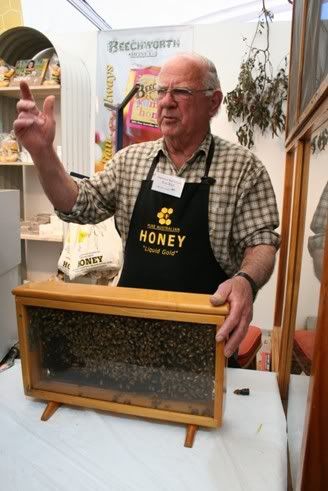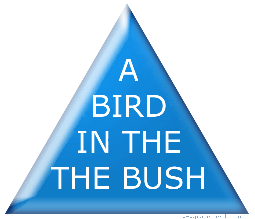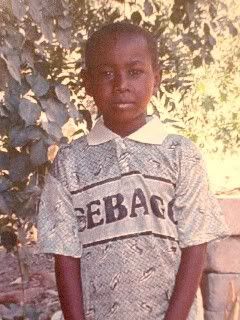With tomorrow as the last day of my two-year service with the company, I have the following people to thank in retrospect:
Anna Lau – Thank you for your constant mentorship especially in the government hospital sector and for imparting your professional knowledge and experience to me. It has been a fruitful and pleasant time partnering with you.
Eugene Chai – Ah Gene-Gor! Thank you for being a wonderful teammate and counselor. Your casual and generous attitudes have gone beyond what colleagues do and have given birth to our friendship.
Annie Poh – Dai Kah Jay! Thank you for accommodating this young and inexperienced colleague in every way and for cheering up the office every morning simply with your presence and jolliness.
Kenny Lim – Regional Sales Champion for 2005! Thank you for being the shining star and pride of Sarawak team. You are definitely a professional role model to look up to. Your thundering presence is something that I will dearly miss!
Sharon Lee – Thank you for making laughing such an easy thing to do. Your professional integrity with your uniquely personal touch is something that’s truly inspiring and admirable.
Now to the best manager I’ve known yet:
George Kueh – I couldn’t have asked for a better boss! Your steadfastness, ingenuity, enthusiasm, integrity and humility are a combination that I’ve never seen before in a superior and that I fear I will never find in a future boss. Thank you first and foremost for believing in me and for offering me this opportunity of a lifetime to work under you for the past two years. Thank you also for continuing to mold and make me into a part of your vision for the team and for expecting the best from me. And I couldn’t thank you enough for your gracious motivation in times when I fall short. You are a constant source of inspiration and a secret recipe that propels personal and professional achievements! I’m simply blessed to have caught a glimpse of the ingredients for success in you.
Not forgetting all others in the bigger family of Sanofi Aventis Malaysia (and the prenuptial Sanofi~Synthelabo days) who made my term in the company an even richer one. To my Sabah and Brunei teammates:
Ian Chan, Gavin Wong, Michael Yee, Josephine Yong, Chai Fui Ming, Felix Chu, Ken Yong, Vincente Wong, and Cynthia Lee-Kwong – for lack of better words, thank you for the brief but cherished connections we’ve had during each company get-together. You are a bunch of friendly and fun colleagues!
To
Colin Yap and
Goon Su Aan in Marketing – thank you through and through for your fantastic work and collaborations. To
Tan Mae Lyn,
Naresh Kumar,
Simon Jesudason,
Loo Beng Siew and all others in Training and Business Support – thank you for making it possible for me to function and excel in my daily responsibilities. To the ever-smiling
Cheah Shih Wei – thank you for putting a smile on my face with your valuable sales updates ;-p. To all my colleagues in Finance – thank you for saving me every month end with your prompt deposits!
To
MK – thank you to the invisible hands at work behind the repping scene that “domino-effected” results down the ladder and made much of my professional success a possibility. To
Victor George Phillips – first of all thank you for agreeing with George that I had what it takes to represent the company at the frontline. Thank you also for being the character I looked forward to at every company function, and for caring enough to remember the little details in passing. Your occasional reminders of bigger things in life have been and always will be a source for forward momentum. To
YS Chua – thank you for leading the team to a superb first quarter at the start of 2006. I deeply regret having missed the opportunity to extend my term under your leadership. My best wishes to you and the future accomplishments of the company with you at the helm. Also a special thank-you goes out to
Patrick Lau for patiently grooming me during my probational period with the company, and to
Cecilia Teoh who never ceased to amaze me with her great affability since my first days with the company.
And last but not least, to countless others and the many nameless faces in the company who have ever offered a passing smile in the corridor, uttered a warm greeting, helped with my detailing skills or passed on a plate in a food queue – thank you for seizing the moment to make one other nameless colleague feel at ease and at home.
Thank you all for everything. My best wishes to you in all your current and future undertakings. May the gracious God bless you.




 I think people at the Jesus Camp are seriously misguided to inject militant ideas into Jesus' teachings and then indoctrinate youths with what's not taught in the Bible to begin with. Pastor Beckey Fischer of Jesus Camp
I think people at the Jesus Camp are seriously misguided to inject militant ideas into Jesus' teachings and then indoctrinate youths with what's not taught in the Bible to begin with. Pastor Beckey Fischer of Jesus Camp


















 One thing that stands out in Melbourne for me from other cities in Australia is the electric trams that cruise alongside motor vehicles on the road. The third largest tram network in the world, Yarra Trams (part of Melbourne's public transport network formerly known as
One thing that stands out in Melbourne for me from other cities in Australia is the electric trams that cruise alongside motor vehicles on the road. The third largest tram network in the world, Yarra Trams (part of Melbourne's public transport network formerly known as 

















